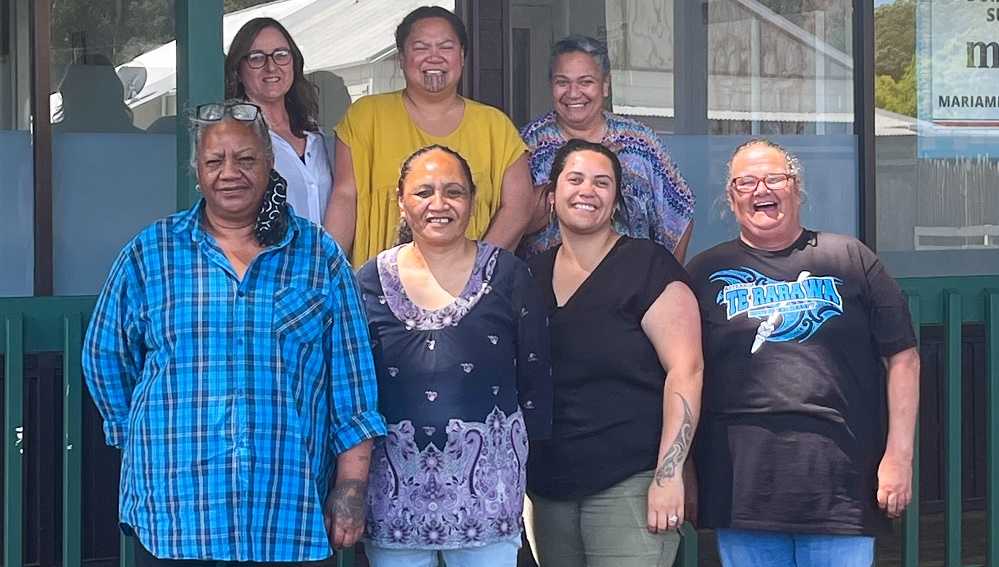Q&A with a community social worker
Published: December 6, 2021
Rita Greaves is a community social worker at Waitomo Papakainga in Te Hiku, the Far North.

In this pānui, Rita shares her whakaaro about the challenges, successes, and aspirations of her mahi. She also celebrates the partnership between her team and the Oranga Tamariki site in Kaitaia.
Waitomo Papakainga use a Te Ao Māori approach to deliver services that meet the diverse needs of their people. They are one of four Māori organisations in the Far North that have a Strategic Partnership Agreement with Oranga Tamariki under the collective – Te Kahu Oranga Whānau.
Why did you join Waitomo Papakainga?
I graduated from the first ever social worker degree in Kaitaia. I joined Waitomo because I didn’t have to change myself or my beliefs or values in tikanga Māori. They were already doing that here. I grow every day because of the people I’m surrounded by.
What is the best part of your mahi?
Interacting with whānau and being able to awhi them any way we can. We don’t call them clients, they are whānau to us. Nine times out of 10, we know who the whānau are and their whakapapa. Most of the kaimahi at Waitomo whakapapa to the five iwi of Muriwhenua in the Far North.
What does success look like?
When we partner up with other government agencies and centre our efforts to support a whānau. If there are issues like drugs and alcohol or domestic violence, we can get tautoko from Oranga Tamariki and the community to wrap services around them together.
Our focus is always on the tamariki, but we don’t work with one person, we work with the whānau as a collective so there is success for all.
What is a good outcome for whānau?
When we have worked to not have their children uplifted or we’ve been able to work with the whānau while the children are in care so they can be safely returned to them.
Through our partnership with Oranga Tamariki in Te Hiku, we’ve prevented hundreds of children from coming into non-kin care since 2018. We’ve placed them with nanas, koros, aunties and uncles, and we monitor their progress closely to make sure they are being cared for. We will always continue to provide support if it is needed.
What’s the biggest challenge you face?
When you spend a lot of time working with whānau and then they disappear or go back to bad habits. Some of the whānau up here go round in circles rather than addressing their challenges early on. But we always take the challenge on and awhi them, and we never turn them away no matter how many times they keep going around.
How do you cope with this challenge?
Waitomo Papakainga has been in the community for over 30 years. We don’t work alone, I’m part of a team, and there’s a lot of strong wahine to learn from.
We do it for the tamariki and mokopuna. The mahi gets easier with time as we build relationships with whānau. They know who we are and that they can trust us so they will come back for our help, even if they are in deep trouble. This keeps me going.
What is special about the partnership with your local Oranga Tamariki site?
When I first started, there wasn’t a relationship but with time I’ve gotten to know most of the people there. I can call up and ask do you know this whānau and vice versa? We can share information and have hui whereas before, that never happened.
We signed a partnership agreement which enables us to work together on some really hard cases and awhi each other. We have an awesome partnership to help make our community better.
What are your aspirations for your community?
Simple stuff. We want everyone to eat healthy kai and be able to access kai moana and kai whenua. We want people to have safe homes to live in and employment opportunities, especially for our rangatahi. We want people to go to their marae and build connections to their whakapapa. We want to make sure the next generation is free of all the ugly that goes on around here. And we want everyone to awhi and support one another in the community.

